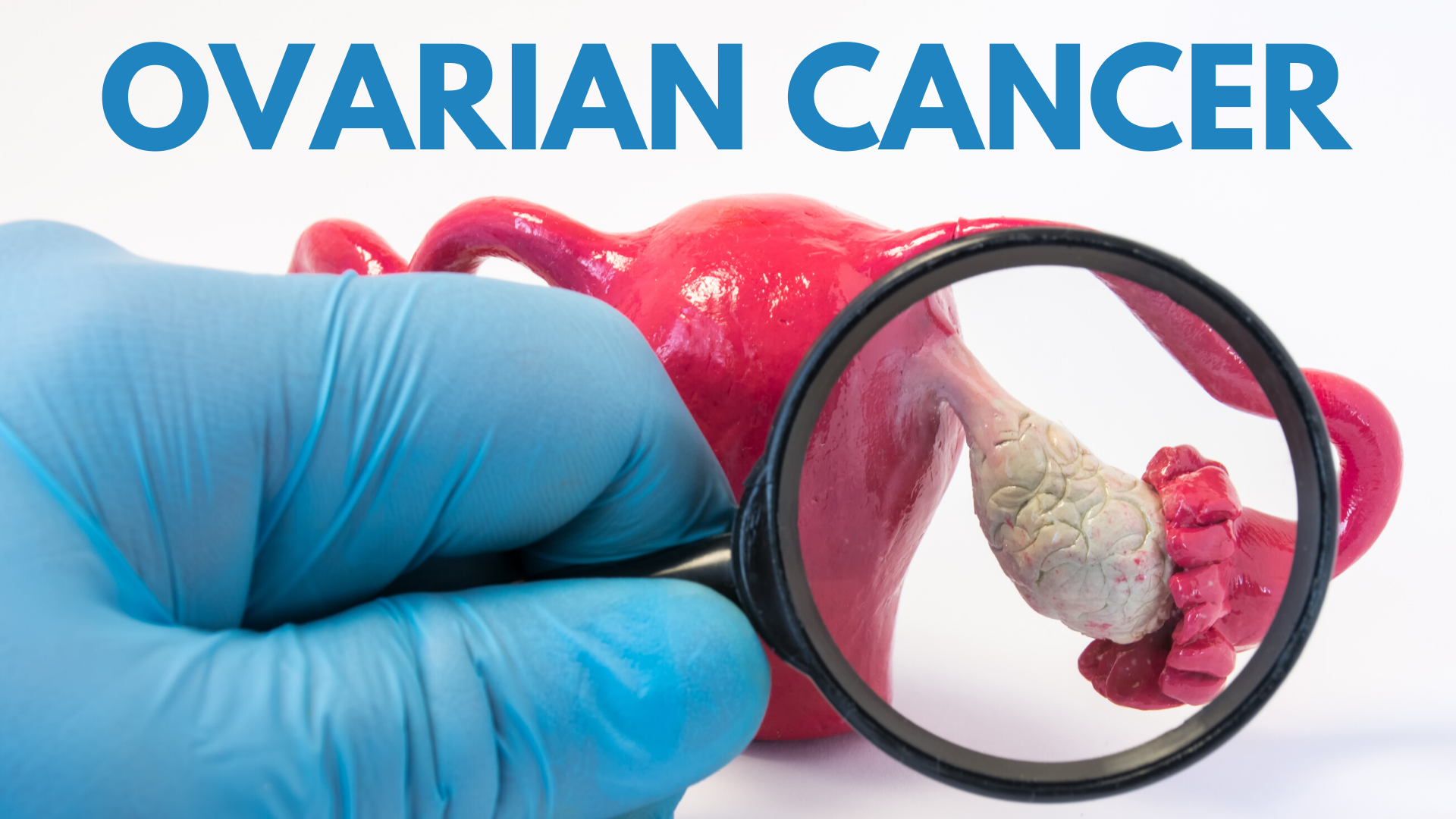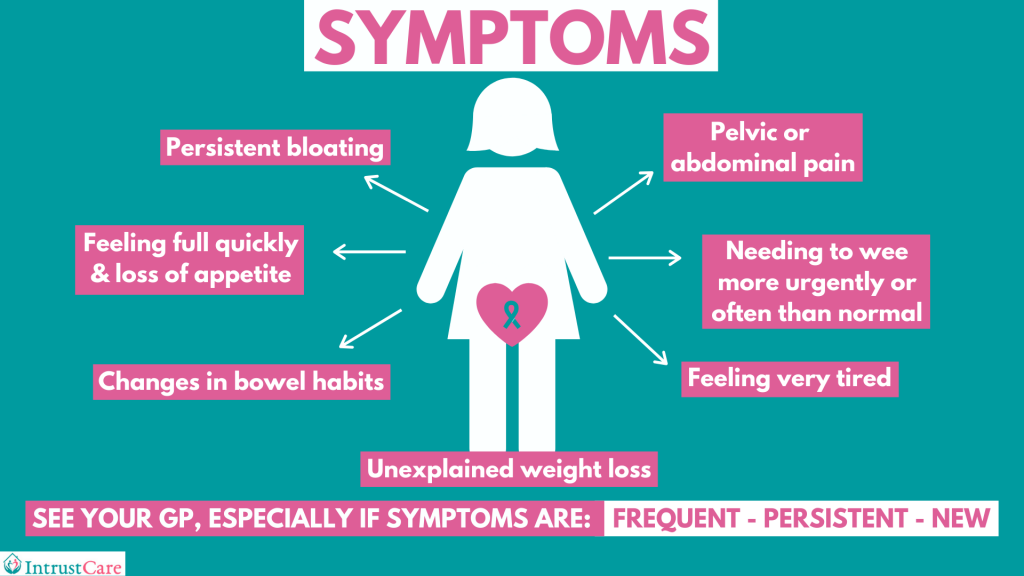Ovarian Cancer; Why Early Diagnosis is so Important

March is hurtling towards us with great speed, and along with British Summer Time, lighter evenings and beautiful daffodils, it also brings us Ovarian Cancer Awareness Month.
Every March is dedicated to raising awareness of ovarian cancer; a disease that sadly leads to the death of 11 women each day in the UK. With early diagnosis playing a large part in treatment being effective and higher rates of survival, we wanted to do our bit to help spread awareness, by writing this blog post.
What is Ovarian Cancer?
Ovarian cancer can be defined as cells growing and multiplying uncontrollably, in or around the ovary (part of the female reproductive system where eggs are stored), or fallopian tubes. The cancerous cells can also spread to other parts of the body.
What are the symptoms of Ovarian Cancer?
The main symptoms that are observed include:
- Persistent bloating
- Feeling full quickly, or loss of appetite
- Pelvic or abdominal pain
- Needing to wee more urgently or often than usual
Other symptoms that may be observed are:
- Changes in bowel habits (constipation or diarrhoea)
- Extreme fatigue (feeling very tired)
- Unexplained weight loss
With any symptoms or changes in how you are feeling we would always suggest going to see your GP. With the above symptoms, this is particularly important if they are frequent (happen regularly), persistent (don’t go away), and new (not normal for you). If you have seen your GP but the symptoms haven’t gone away, you can ask for a second opinion.

Why is early diagnosis so important?
If ovarian cancer is diagnosed at the earliest stage, the survival rate can be up to 90% for women diagnosed in the UK. The earlier that a woman is diagnosed, the more likely her body is to respond to treatments, with the cancer being cured. Unfortunately, current figures show that two-thirds of women with an ovarian cancer diagnosis are diagnosed after the cancer has already spread. This is why education and awareness months are so important; they can literally save lives.
It is also important to note that cervical screening tests (smear tests) do not detect ovarian cancer. Some women may delay seeking help for symptoms because they believe that their smear test would have picked up on the cancer. This is not the case.
What will my GP do?
Symptoms may be completely unrelated to cancer, however, for your GP to know the cause of any symptoms they will usually order further tests. This may be a blood test, an ultrasound scan, or a CT scan.
Risk factors
The causes of ovarian cancer are not known, however, there are certain factors that may increase your overall risk.
- Being over the age of 50 – having gone through the menopause (although younger women can also have ovarian cancer).
- A family history of ovarian or breast cancer.
- Using HRT (Hormone replacement therapy), although this creates only a very small cancer risk.
- Endometriosis (a condition where tissue that behaves like the lining of the womb is found outside of the womb).
- Being overweight
- Smoking
- Lack of exercise
- Exposure to asbestos
What treatments are available?
Treatments aim to cure the cancer and to stop it from returning in the future. This is entirely possible if an early diagnosis has been made. If the cancer is more advanced and has spread significantly to other areas of the body, treatments will focus more on controlling the cancer and relieving the symptoms for as long as possible.
The two main types of treatment are surgery and Chemotherapy.
Surgery
The aim of any surgery will be to remove as much of the cancer as possible. Ladies will often have a total hysterectomy (removal of the uterus and cervix) along with a bilateral salpingo-oophorectomy (removal of both ovaries and fallopian tubes).
Chemotherapy
Chemotherapy is where medicine is used to kill the cancer cells. It can be used either before surgery (to shrink the cancer), or after surgery (to remove any remaining cells). In some cases, it may be used both before and after surgery.
As you can see, early diagnosis of ovarian cancer is key to better treatment outcomes and survival rates. If you have symptoms, or know someone that has, make sure to get an appointment with a GP sooner rather than later.
We hope this article has been helpful. We have included some useful links below to give you even more information, or further support for you or a loved one who has been affected by ovarian cancer. Please share this post with your friends on social media, to get more awareness of ovarian cancer out there, and ultimately, save lives!
Useful links:
NHS: https://www.nhs.uk/conditions/ovarian-cancer/
Target: https://www.targetovariancancer.org.uk/
Cancer Research UK: https://www.cancerresearchuk.org/about-cancer/ovarian-cancer
